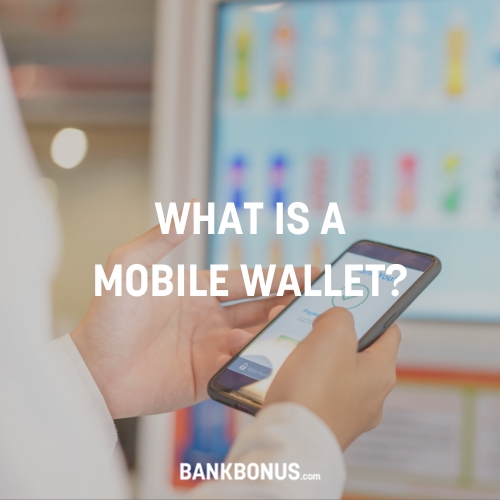Traditionally, cash and paper checks were the most common methods to transfer funds, but today there are more efficient ways to move your money.
Most people don’t keep their money under their mattress but in a bank or credit union account. Direct deposits save a lot of time and hassle by directly transferring money from one bank account to another.
In this article, we’ll cover the essentials of direct deposits, including how they work and how to set them up.
What is a Direct Deposit?
Direct deposits are ACH transfers used to deposit money from one bank account into another electronically.
Since direct deposits are electronic funds transfers, there’s no need to withdraw any money, write checks, or visit a bank branch.
Instead, an electronic bank form is filled out and passed on to the bank. These forms are relatively easy to complete on your mobile banking app or banking website.
How Do Direct Deposits Work?
It’s essential to understand that direct deposits are a type of ACH payment.
ACH is short for Automated Clearing House, a network of all US banks that allows money to move from one account to another.
Direct deposits are often used to pay salaried employees and to transfer tax refunds, retirement payments, and Social Security benefits.
Transfers are typically deposited at midnight on the day of the payment. Meanwhile, tax refunds are usually issued by direct deposit a few weeks after filing.
Before money is transferred, the recipient has to supply their bank information, including the name, routing number, and account number. You can usually enter this information manually or share a voided check.
TIP: If you rather share an electronic voided check, try out FormPro’s check generator.
How Long Do Direct Deposits Take?
In most cases, a direct deposit will be deposited on the same day or the next. How quickly this happens will depend on several factors.
Since direct deposits use the ACH network to move money, the sender’s bank needs to connect to the network to send money to the other bank account.
Banks have time windows during which they can send these instructions. They will typically pile all direct deposit requests until their window opens then send everything in batches.
The earlier you send a direct deposit, the earlier the money will get into the payee’s target account. Direct deposits initiated late in the day may be processed the next day, especially after the bank’s cut-off time.
Direct Deposit Uses
As we mentioned earlier, direct deposits serve several purposes.
Here’s a closer look at their main uses:
- Salary and wages: Direct deposit is commonly used by employers to pay their employees. Instead of receiving a physical paycheck, funds are electronically deposited into the employee’s personal bank account, eliminating the need for paper checks and reducing the risk of lost or stolen payments.
- Government benefits: Various government agencies, such as the Social Security Administration and the Department of Veterans Affairs, offer direct deposit options for benefit payments such as unemployment benefits or Social Security benefits.
- Tax refunds: When individuals file their income tax returns, they can choose to receive their refunds through direct deposit. This method ensures a quicker and more secure delivery of the refund, as opposed to waiting for a physical check to arrive in the mail.
- Pension payments: Many retirees depend on direct deposits for their pension payments. Retirees can set up direct deposit with their pension plan administrator to receive their monthly pension payments directly into their bank accounts.
- Dividends and investments: Investors who earn dividends or other investment income can opt for direct deposits, too. This streamlines the process of receiving earnings from investments and reduces the risk of delays or lost checks.
- Insurance claims: When individuals file insurance claims and are eligible for reimbursements, insurance companies may offer the option of direct deposit. This provides faster and more convenient access to claim payments.
- Child support: You can also elect to send or receive child support payments via direct deposit for steady recurring payments.
- Refunds and rebates: Businesses often provide refunds or rebates to their customers. Customers can sometimes receive the funds directly into their bank accounts, eliminating the need for manual check deposits.
- Rental income: Landlords can ask tenants to pay their rent through direct deposit. This simplifies rent collection, reduces the risk of bounced checks, and ensures timely access to rental income.
How To Set Up Direct Deposits
To receive direct deposit payments, you need to supply the payer with your account information so they know where to send the money.
You may be asked to provide a voided check or complete a direct deposit form. If you need to fill out a form, you can often view the necessary information from your bank’s mobile app or website.
You’ll need to provide the following information:
- Your bank account number: The number for the account where you want to receive your money. Typically, it will be your checking account.
- The type of account: The type of account for which you’re providing the account number.
- Your bank’s routing number: The routing number, also known as the ABA routing number, essentially tells the payer which bank should receive the funds.
- The bank’s name and address: Here, you can use the address of any of the bank’s branches.
- The account holder’s name: The recipient’s full name, as it appears on their bank account.
You can also send direct deposits to family and friends from your phone with online banking platforms.
Pros & Cons of Direct Deposits
Direct deposits have more perks than other methods of depositing money, but there are also some potential drawbacks. We’ll take a look at both below.
Benefits of Direct Deposits
- Speed: Direct deposits are faster than a paper check. Since everything happens electronically, there’s no need to mail anything, which means payments won’t get stuck in transit. A personal check also needs to be deposited at the bank and can take up to 5 business days to clear, while direct deposits are cleared automatically.
- Cost: Direct deposits are less expensive than wire transfers. In most cases, direct deposits are free. However, there might be some small charges depending on the originating bank.
- Security: Direct deposits are more secure than cash, checks, and wire transfers. They can’t get lost in the mail and are processed through a secure network that uses several checks and balances to ensure it’s as safe as possible.
- Sustainability: Additionally, direct deposits are a sustainable form of payment. They reduce paper waste from deposit slips, checks, and envelopes.
Drawbacks of Direct Deposits
- Bank account requirements: To set up direct deposits, you must have a bank account. This might pose a challenge for individuals who don’t have access to traditional banking services or prefer to use alternative financial institutions.
- Lack of privacy: Direct deposits require sharing your bank account information with your employer or another party. This could raise concerns about privacy and the potential for identity theft or unauthorized access to your financial information.
- Lack of physical record: Unlike physical paychecks, direct deposits don’t provide a physical record of your income. This might create challenges when applying for loans, verifying income for assistance programs, or in situations where a paper trail is required.
Frequently Asked Questions
Is a direct deposit a wire transfer?
While direct deposits may sound similar to wire transfers, they’re different. Wire transfers deposit money directly into a bank account, and they’re more expensive and faster than direct deposits.
Who should use direct deposits?
Small business owners use direct deposit to pay employees like clockwork each pay period; the government uses it to pay social security benefits and tax refunds, among other things.
Taxpayers can use direct deposits to pay their tax returns. You can also use direct deposits to move money from one account you own into another, pay utility bills, or make other payments.
Likewise, they can be handy if you want to transfer money from your checking account into your savings account.
Federal benefits (Social Security Benefits) also transfer funds through a direct deposit to your checking account or a prepaid debit card.
What counts as a direct deposit?
So, what counts as a direct deposit? The following electronic payments count as direct deposits:
- Salary or other regular monthly income
- Pension
- Social Security
- Supplemental Security Income (SSI)
If you need to set up a direct deposit to claim a bank bonus offer, it’s best to check on the bank’s website and the offer details to make sure your payment counts as a direct deposit.
While the two most common forms of direct deposits are paychecks or government benefit checks, there are usually other ways to meet this requirement like simply setting up an ACH deposit from your main bank account to your new one.
You can also often make your bank think you made a direct deposit by moving money from a PayPal account to your bank account. There are also bank bonuses without direct deposit requirements as well.
Does direct deposit work immediately?
Once the payer sends direct deposit instructions to the bank, the bank has to wait for its next window to send it to the other bank. If the instructions are received after the cut-off time, they will be processed on the following business day.
How can I get paid without direct deposits?
Here are some of the top alternatives to direct deposits:
- Cash
- Paper checks
- Digital payments like PayPal
- Prepaid debit cards
- ACH credit and debit payments
- Mobile wallet
Learn More:
Direct Deposits Are Fast & Secure
Whether you’re sending or receiving money, direct deposits solve many of the problems of other payment methods.
They’re faster than checks, more convenient than cash, and cheaper than wire transfers.
Convenient for payday checks, tax refunds, and a host of other transactions, direct deposits are an affordable, easy personal finance solution.





Comments are closed.
Comments are closed here.